NORBELLA AGUILAR | THE DANCE PERFORMER. Domestic violence, immigration, and mental health issues become music and dance.
Norbella Peña Aguilar, 43, is a Spanish teacher and dancer. The daughter of Mexican parents, Peña and her family moved to Michoacán, Mexico, when she was 5; six years later they moved back to the U.S. She spent the rest of her childhood on the North Side of Chicago. She currently lives in Wheeling and identifies as a Latina, Hispanic or Chicana.
When did you start to dance professionally and when did you start Las Cartas de Frida?
I started dancing professionally in my early 20s. I’ve always loved dancing even when we lived in Mexico. I’ve never taken courses; I just learn on my own. But it’s something that I feel like I have within me, like breathing. I had been [in the U.S.] for 11, 12 years when I started missing Mexico. It was just that absence, that hole in my heart, my culture, my background.
I have a cousin who is a theater actress, Claudia Rentería. She introduced me to her group of friends and in that group [there] was Laura Crotte, an actress, musician, director, and producer [who] was putting together a play at the time. This huge group of artists taught me everything that I wanted to write about my culture, art, music. It was just like an awakening for me.
I was part of the play and then I came across other musicians. We put together a band and performed for a long time. We did a little bit of traveling within our country and we taught workshops. And I love it. It’s been one of the best parts of my life.
The idea for Las Cartas de Frida had been brewing for a long time, a project that my cousin and I always talked about. Maybe about six years ago, on Saturdays, the plan was to get together for breakfast. We would be there for dinner. We had taken a break from performing. We missed it. We cried about it and we said: ‘It’s time to go back.’ But we weren’t sure what we wanted to do.
We started talking about the lack of attention in women’s mental health. How we really do not have a space or the time given for us to say, ‘I’m having a bad day, I’m depressed, or I don’t feel good today.’ As women, we are so expected to just keep going, right? It’s either work, school, family, children, husbands. It’s nonstop. Then we started talking about our mothers and the details we noticed about [them.] We saw [mental health issues] growing up, but we were never able to identify or give it a name. We said: ‘What would be the easiest way for us to express how we’re feeling?’ We can’t say it because we’re afraid to be judged. ‘Well, writing, it’s free. It’s really right. You’re releasing. And that’s how it got started.
I was introduced to Frida Kahlo by my cousin Claudia yet again. Frida was the first feminist in my life without me knowing that she was a feminist. Since then, she’s had a huge influence in my life in many ways.
“I’m very passionate, transparent, honest. But it took a long time to get to where I am, to express myself freely. I grew up in a very traditional machista household.”
What is Las Cartas de Frida?
We gather the letters from women and they are interpreted on stage, through music and dance. These letters are anonymous. The topics of the letters vary. We mainly receive letters that deal with domestic violence, immigration, and mental health.
What is the mission of Las Cartas de Frida?
It is to provide women with a safe space for self-reflection and self-expression. I would love for all of us, not just artists, to ask women: ‘How are you today? How are you really feeling today?’ Because we’re always so fast to say: “I’m fine, I’m good.” But to really ask, how are you doing? and to provide a hug, because that always feels better. Just to remember that women feel that we carry so much inside.
What inspired you to become a dancer and to start Las Cartas de Frida?
Just the passion for my culture, for dancing. It was something that was kept in the little box for many years that I knew was in there, but I didn’t know how passionate I was about it and how powerful it was for me. I am now 43, but performing in my early twenties, even my early thirties were just so emotional for me, whether it was at a friend’s party or at the House of Blues. Just seeing people feel what I felt on stage made me want to cry. So, I’m a crier. There were so many times that I was on stage and I would think: ‘If I was to die tonight, I would die happy.’
How would you describe yourself?
I’m very passionate, transparent, honest. But it took a long time to get to where I am, to express myself freely. I grew up in a very traditional machista household, where women are to cook and to stay home. Women do not play soccer. They don’t ride bikes, but the boys can go outside and play. I was very dissatisfied with the way I was growing up. I was always the rebel in the house. I went against what my traditional parents wanted for me. I moved out of the house when I was 19. I love my parents and they did the best for all of us but I wanted more. I knew that I had a lot to say. And if I stayed home, I would not be able to do it.
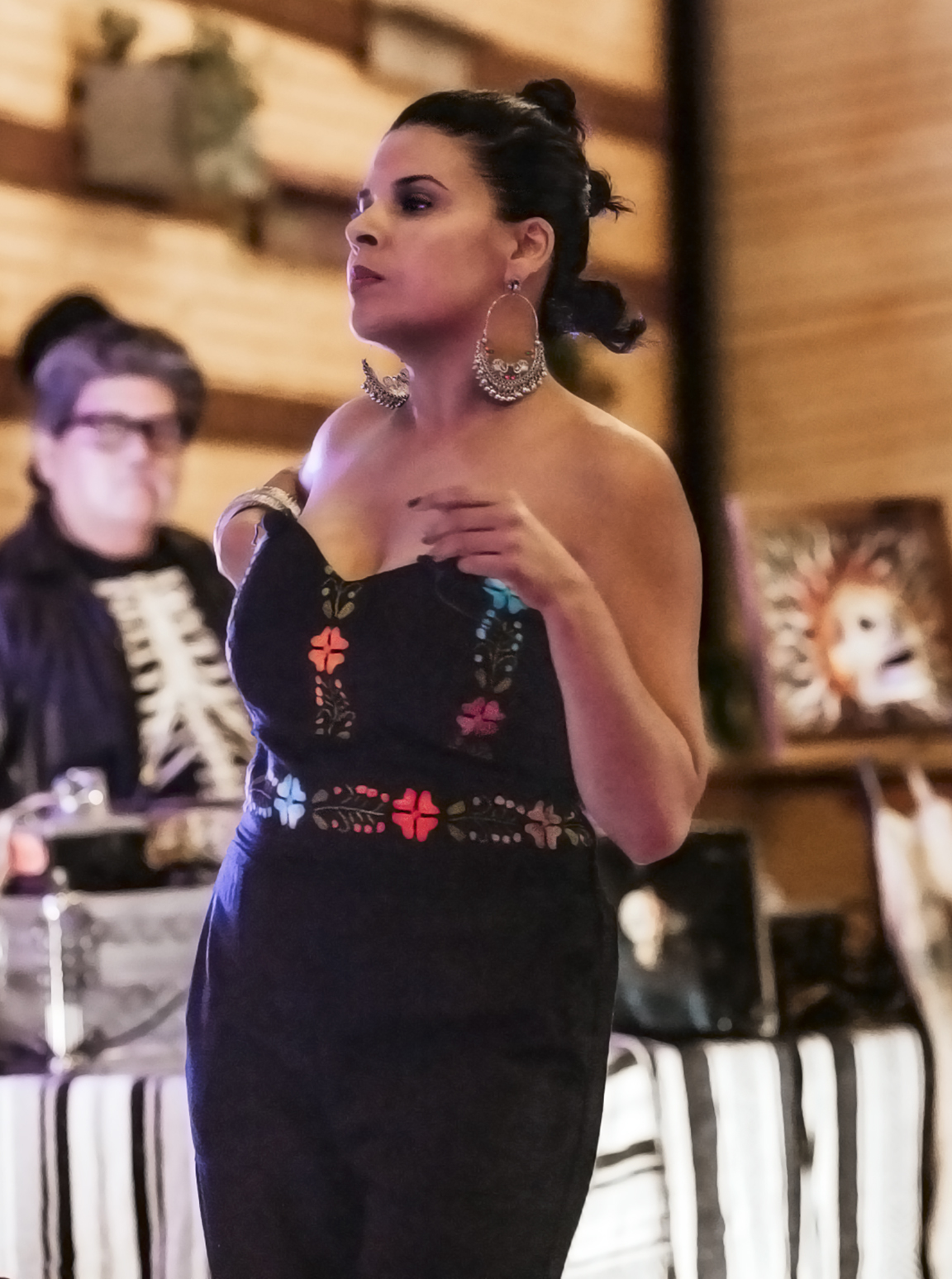
How would you describe your culture?
My culture is beautiful. It’s colorful, it’s kind, it’s dreamy. I think of Mexico and I think of kind people smiling at you. But it’s very unjust, especially to women. There are aspects of the traditions that I love, but [others] that I don’t agree with, and I will not follow. Going back to the place that society thinks women should be in, I am very much against that. I will not follow those traditions. But there are aspects that I want to pass on to my daughter, to future generations, and to my students.
How has your identity as a Latina influenced your art?
I have a lot to say. I don’t consider myself an artist but a woman pursuing through art. I want Latinas and all women to have the freedom to express themselves, to not feel the strain, to say what they want and what they feel. That is my drive and my motivation.
How has your family influenced your art, if it has?
Yes, in many ways. There were some rough patches in my childhood growing up, and as time goes by, I’m healing from it. It’s so nice to get together with my family and make a traditional Mexican dish. There’s music and there’s children running around. [My family is] there when I need them. I have a daughter. I want her to learn as much as I can from me and from her own experiences in life, about all cultures, to appreciate and love people and not just tolerate them. We respect people by learning about one another. My family’s a huge influence in my life and in an artistic way as well.
What is the motivation or the purpose of your art?
I would love for women to find their strengths, to see that they have influence within them. It’s hiding somewhere because society has told them that they can’t express what they want. Women are not given the time or the space. It’s horrible. I saw my mom growing up and it’s hard to find the strength to say what you want. There is somebody else out there for them, willing to listen, willing to talk.
How do you make your art accessible to an audience?
With technology and social media, I try to be as active as possible. I also offer workshops where we get together with groups of women. We talk about aspects of freedom; about feedback. I encourage women to find what they love about themselves because we are so fast to say: ‘Oh, this is what I don’t like about me,’ whether it’s our personality or even physically. I try to put that aside and just think of what you love about yourself. That’s how we also get our letters that we use for the performance, through workshops, social media, just spreading the word. I also do storytelling for children, so when the parents come, I tell them about Las Cartas de Frida.
Who is your target audience and how do you want your art it to be received?
Women and children. I want it to be received with respect, with an open mind. And just to give the time, the space to listen, because we have a lot to say.
What is missing from the art world and what does your art provide?
Representation of women. It’s getting better as time goes by. But we need more women to express themselves through all forms of art. It’s not that I want people or men to clap for what I’ve done. I do it for myself and for women. But what I do want is that they acknowledge talent in women. Women are strong. I see it. There’s lots of passion out there.

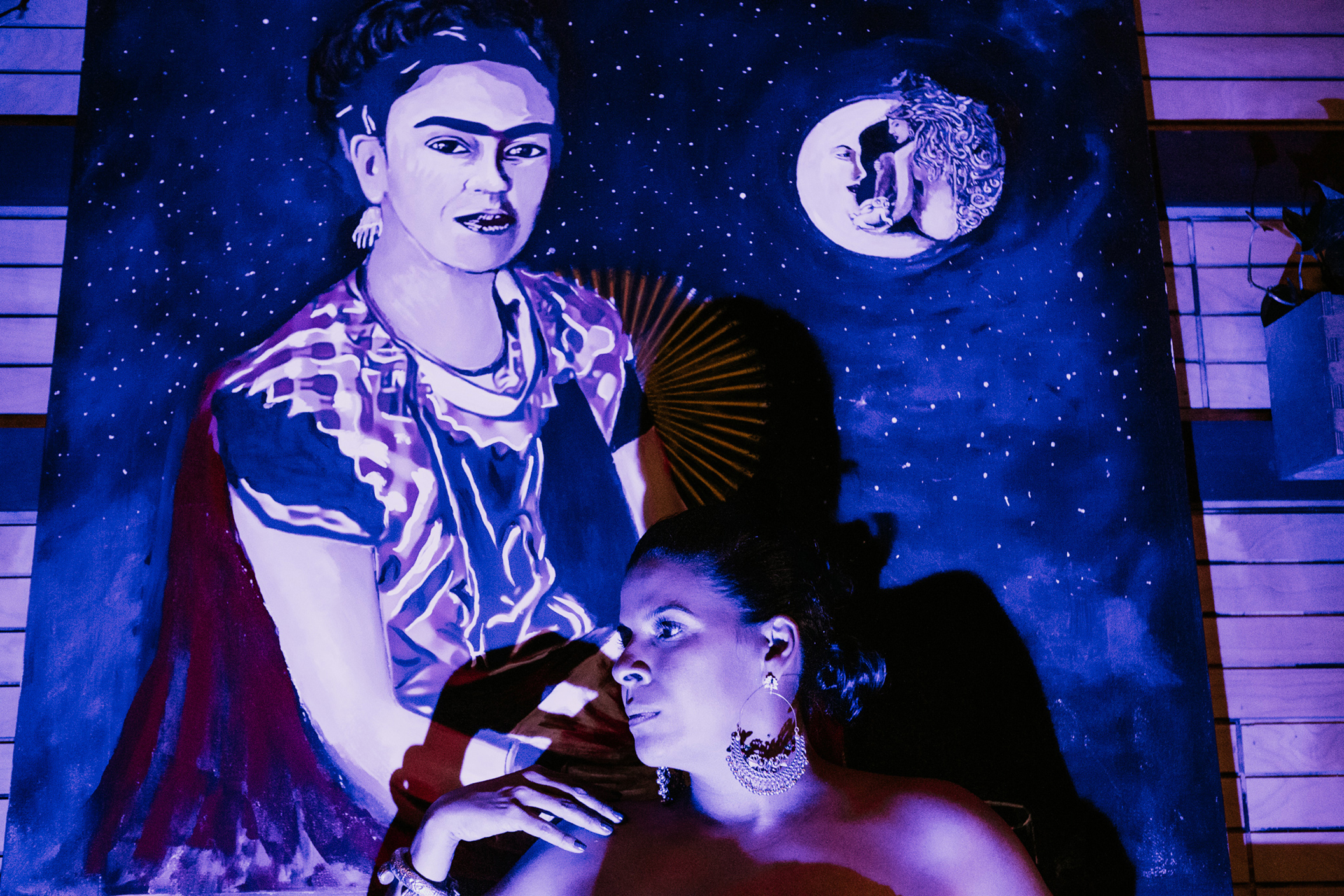

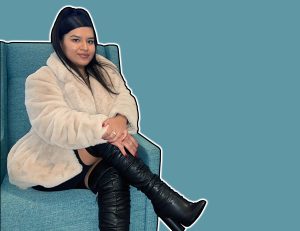
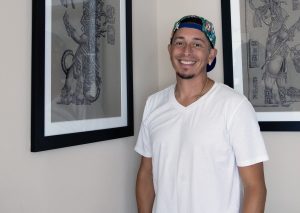
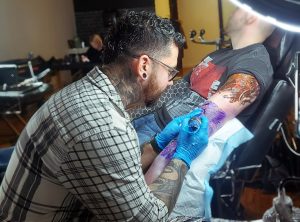
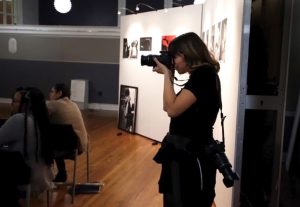
Be First to Comment